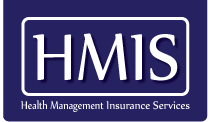
Travelling Safe – Guidelines for Tour Managers
A guide for travelling well and keeping safe in an increasingly uncertain world for Tour Managers
[list style=’arrow’]
[li]The following notes are a collection of common-sense rules. Not to be blindly followed, but a guide to the wise, especially for tour managers. Obviously not every recommendation or suggestion applies to every city or country, any more than every threat can be foreseen or predicted.[/li]
[li]Tour managers should familiarise themselves with these guidelines and brief members of their touring party on general precautions. This is prudent in view of the increased international and regional tensions in recent years. [/li]
[li]When travelling with young people, especially those who may not have had previous travelling experience, it is crucial to keep control of the group and avoid members of the travelling party “wandering off”.[/li]
[li]The tour managers (and also travellers in general) must therefore plan and prepare with care and project an image of alertness and preparation. Their clothing, baggage and actions must demonstrate that they are a ‘seasoned traveller’ and avoid the “naïve look”. Muggers, thieves or terrorists share one common method of operation. They will always hit the weak, the unsuspecting or the unprepared. In each case the alert and prepared traveller will be avoided in favour of the easy quick hit. [/li]
[li]Demonstrate alertness and observation and assess possible alternatives if circumstances demand. Know where your nearest Embassy is located and obey local laws. [/li]
[li]Safeguard your passport at all times. Make an effort to be aware of potential danger and adhere to prudent security practices. Never take the view “it will not happen to me” because it will.[/li]
[/list]
Pre-Planning
[li]Carry out a thorough familiarisation of the route and countries to be visited – if you can avoid ‘difficult’ areas, please do so.[/li]
[li]Check for health precautions. [/li]
[li]Register your travel plans with www.safetravel.govt.nz Safe Travel registration is free – it is the official registration facility for New Zealanders travelling or living overseas www.safetravel.govt.nz [/li]
[li]Advise family and friends of your travel plans.[/li]
[li]Seek up-to-date professional advice on specific aspects and current conditions and check travel safe websites for travel advisory notices. Swot up on country information.[/li]
[li]Carry a photocopy of your passport and other important documents – it doesn’t replace a passport but weighs nothing and helps establish credibility should you lose it. Put a copy in your mobile phone or laptop.[/li]
[li]Note all relevant contact details and addresses.[/li]
[/list]
Baggage
[li]Travel light – luggage able to be readily carried [/li]
[li]Ideally one bag for the hold – one for the cabin[/li]
[li]No laptop bags – they remove all doubt as to contents[/li]
[li]Robust baggage with good locks to deter the opportunists[/li]
[li]The cabin bag should have a shoulder strap to leave one hand free – the other is firmly gripping your suitcase[/li]
[li]Always pack your own bags – a common airline security question – and pack your cabin bag to allow you to exist for a few days if, for whatever reason, you are deprived of your hold baggage. Put a toothbrush –small battery razor –clean knickers – socks, etc. in your cabin bag.[/li]
[/list]
Airports
[li]Arrive early, check in and clear passport control. You are safer on the other side.[/li]
[/list]
The travel insurance
WHAT TO DO IN THE EVENT OF A CLAIM
Avoid the temptation to try and solve an emergency on your own. The 24/7 assistance service is there to provide the traveller(s) with a range of emergency medical advice and travel assistance.
Your Travel Assistance Card shows an emergency contact number. When you make contact, you will be usually be speaking with a home-based organisation although later in the assistance process they may have to channel your assistance liaison to a regional network provider.
What to Do in the Event of a Claim:
This is a 24/7 service. Use of this service will ensure that prompt and appropriate arrangements can be made on the claimant’s behalf.
Contact home if you are near a major disaster or incident while travelling overseas.
Tips when phoning the emergency contact service:
[list style=’arrow’]
[li]Speak slowly and clearly[/li]
[li]Be patient – the operator may have to adjust to your language and dialect [/li]
[li]Identify yourself and provide them with: your name; what has happened, where are you, who is the treating doctor or contact person; what are their contact details; where can you or accompanying person be contacted[/li]
[/list]
GENERAL ADMINISTRATION AND SERVICE CONTACT
This information is provided as a guide for the use of clients insured the Health Management Insurance Services Ltd. If any aspect requires clarification please contact:
John Dallimore – Principal
Health Management Insurance Services Limited
Mobile + 64 21 740 266 or Office DDI +64 9 215 9004
Email: [email protected]
